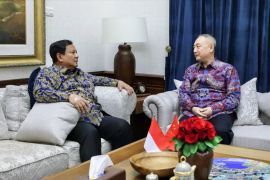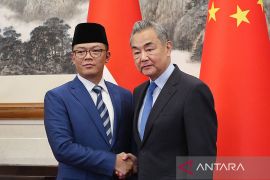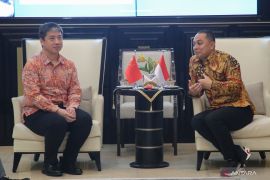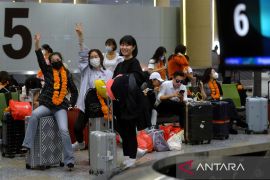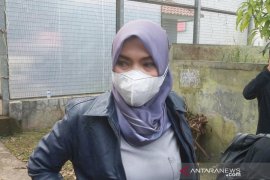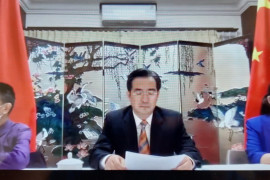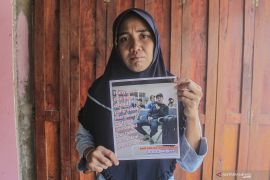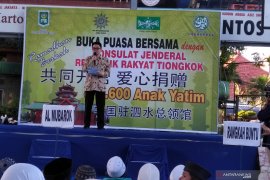... General Peng Yong, who was named commander of the Xinjiang military region in July 2011, was dismissed from his post... "Beijing (ANTARA News)- China's Communist Party has expelled the military commander of Xinjiang from its ranks, state media reported Sunday, after an attack in Beijing officially blamed on members of the Uighur minority in the troubled northwest region.
General Peng Yong, who was named commander of the Xinjiang military region in July 2011, was dismissed from his post as a member of the Standing Committee of the Chinese Communist Party of Xinjiang, the Xinjiang Daily said in a terse dispatch.
The state-run paper did not give a reason for Peng's removal but it comes after last Monday's attack in Tiananmen Square, which was a major embarrassment for the enormous state security apparatus.
Xinjiang has been the scene of several violent clashes, the most recent of which left dozens dead in April, June and August this year.
After being stripped of his party post, Peng is likely to be relieved of his military responsibilities in the mainly Muslim region.
According to Chinese police, three Xinjiang Uighurs drove their car loaded with petrol cannisters into the gate of the Forbidden City in an attack that left two dead, besides the three people in the car, and 40 injured.
Chinese state television said the attack was carried out by a group of eight "terrorists" who possessed weapons including "Tibetan knives and 400 litres of petrol".
A Uighur rights group said more than 50 people had been arrested in Xinjiang, where China's mostly Muslim Uighur minority is concentrated.
The far west region has been sporadically rocked by unrest that authorities have usually blamed on "terrorists" and "separatists".
But Uighur organisations dismiss claims of terrorism and separatism as an excuse by Beijing to justify religious and security restrictions.
Beijing says its policies and investment in Xinjiang have brought tremendous development but critics counter that the economic growth mostly benefits an influx of ethnic majority Han Chinese, millions of whom have moved to the resource-rich region.
Ethnic frictions have risen in Xinjiang as a result, and rioting in the capital Urumqi involving both ethnic groups in 2009 left 200 people dead.
Editor: Ade P Marboen
Copyright © ANTARA 2013
